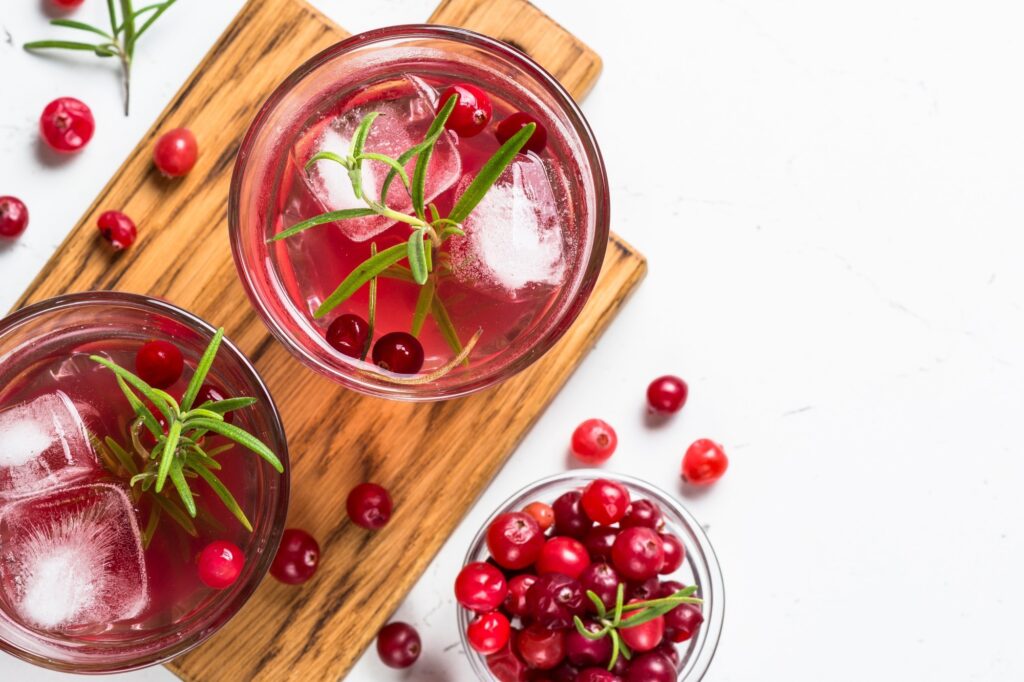The cranberry-based beverage offers a new avenue to smoother, firmer skin, especially for women over 40, by improving elasticity and protecting skin from UV damage.
Study: A polyphenol-rich cranberry drink positively impacted skin health, skin lipids, skin microbiome, inflammation, and oxidative stress in women in a randomized controlled trial. Image credit: nadianb / Shutterstock.com
In a recent study published in the journal Nutrients, researchers evaluated the effects of a polyphenol-rich cranberry drink on women’s skin health, lipids, and microbiome.
Can polyphenols slow down skin aging?
Skin ageing occurs through intrinsic and extrinsic mechanisms. Intrinsic ageing is caused by the natural accumulation of reactive oxygen species (ROS) over time, whereas extrinsic ageing is caused by external factors such as sun exposure, pollution, and smoking. Both processes are driven by oxidative stress, inflammation, and advanced glycation end products (AGEs).
The skin microbiota, consisting of bacteria, fungi and viruses, is essential for immune function and skin homeostasis. Polyphenols, known for their antioxidant and anti-inflammatory properties, have been investigated for their positive effects on skin aging.
However, further research is needed to fully understand the long-term effects of polyphenol-rich cranberry drinks on skin health, lipids, and the microbiome, and to explore their mechanisms of action in different populations.
About the Research
The polyphenol-rich cranberry beverage used in the study was made from concentrated cranberry juice and packaged in 8-ounce bottles manufactured by Ocean Spray Cranberry Co. Each bottle contained 192.9 mg of procyanidins, 19.5 mg of anthocyanins, and 24.2 mg of flavonols.
The placebo drink was designed to mimic the appearance, taste, and color of the cranberry drink without the active compounds. Dosage was determined based on previous studies of the effects of cocoa on skin parameters.
A power analysis was performed to determine sample size using the results of previous studies on the effects of green tea polyphenols on skin elasticity. This randomized, double-blind, placebo-controlled study was conducted at the University of Florida in accordance with ethical guidelines and approved by the Institutional Review Board.
Twenty-four women aged 25 to 65 with Fitzpatrick skin types 2 and 3 participated in the study, split into two age groups. Study participants consumed either the cranberry drink or a placebo for six weeks, then had a three-week washout period before switching to the opposite treatment.
Various skin parameters were assessed, including elasticity, hydration, and ultraviolet (UV)-induced erythema. Blood samples were also taken for oxidative stress analysis. The researchers also examined changes in skin lipids and the microbiome by tape stripping and swabbing.
Research findings
At the start of the study, 24 participants were enrolled and randomly assigned; however, two participants dropped out after phase 1 due to scheduling conflicts, resulting in a total of 22 participants who completed both treatment phases.
Baseline characteristics including age, weight, body mass index (BMI), Fitzpatrick skin type, and minimal erythema dose (MED) were assessed. No significant differences were found in these parameters between the groups.
Due to technical issues, skin lipid analysis was performed on 20 participants, whereas microbiome analysis was performed on 12 participants. Ten participants were included in the microbiome-lipid correlation analysis. A food frequency questionnaire was also used to ensure that study participants maintained their habitual dietary habits throughout the study period.
Consumption of the cranberry drink for six weeks significantly protected the skin from UV-induced erythema compared to placebo and baseline measurements, especially in women over the age of 40. Improvement in erythema, measured as the change in redness of the skin after UV exposure, was significantly reduced after consumption of the cranberry drink, whereas this effect was not seen in the placebo group.
Six weeks of cranberry juice consumption improved overall facial elasticity and smoothness in all participants, and stratified analyses revealed that these benefits were most pronounced in women aged 40 years or older.
The cranberry drink also improved the overall elasticity of the forearms and reduced wrinkles, but the strongest effects were observed in the older study participants as well: Transepidermal water loss (TEWL) decreased and biological elasticity increased after consumption of the cranberry drink.
Cranberry beverage increased superoxide dismutase (SOD) activity, improved glutathione peroxidase (GPx) activity, and reduced tumor necrosis factor alpha (TNF-α) levels compared to baseline compared to placebo. These effects varied by age group, with changes in SOD and TNF-α being more pronounced in younger women and improvements in GPx being more pronounced in women aged 40 years or older.
Lipid analysis revealed clear differences between the cranberry and placebo groups and identified several discriminatory lipids. Consumption of cranberry drink did not significantly affect skin microbial diversity, but it did modulate the abundance of certain microbial species and strains. These changes in microbiota composition were associated with specific skin parameters, suggesting a potential link between cranberry polyphenols and skin microbiota health.
Conclusion
The cranberry drink prevented UV-induced erythema and increased skin elasticity, but these effects were more pronounced in older women. Ingestion for six weeks also regulated skin lipids, but had no effect on hydration, pH or other parameters.
Consumption of a cranberry drink altered the skin microbiome at the species and strain level, with significant effects on the abundance of Rothia mucilaginosa and Staphylococcus epidermidis, which are associated with skin health. Overall, older women responded better to the dietary intervention than younger participants.
Journal References:
Christman, L., De Benedetto, A., Johnson, E., et al. (2024). A polyphenol-rich cranberry beverage positively impacts skin health, skin lipids, skin microbiome, inflammation, and oxidative stress in women in a randomized controlled trial. Nutrients. doi:10.3390/nu16183126
Source link



